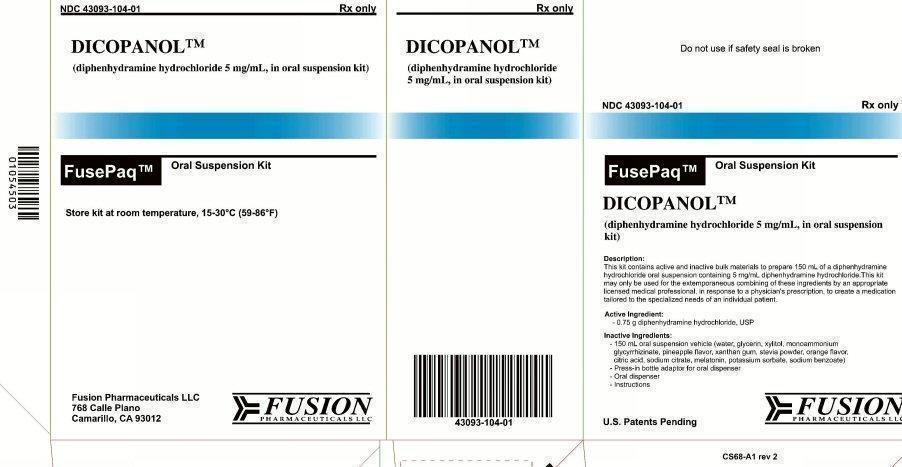Dicopanol | Diphenhydramine Hydrochloride Kit while Breastfeeding

I am currently breastfeeding and I want to know if using Dicopanol | Diphenhydramine Hydrochloride Kit is safe for my kid? Does it have any effect on milk production?

Dicopanol | Diphenhydramine Hydrochloride Kit Breastfeeding Analsys
Diphenhydramine hydrochloride while Breastfeeding
Low RiskCAS Number: 58-73-1
It is a first generation antihistamine drug (Ethanolamine) with a strong sedative effect. A high protein-binding capacity makes difficult an excretion into breast milk in significant amounts in accordance with old studies that had confirmed it. The absorption from ingested mother's milk to the infant's plasma is hampered by a low oral bioavailability. For both, the mother and the infant is safer the use of antihistamine medication with higher safety levels without sedative effect, especially when the child is a premature or younger than 1 month old. Neither a decrease of milk production nor alteration of Prolactin release have been shown with the use of this drug. When used while breastfeeding do it with the lower dose as possible and avoid a long-term use. Check up for feeding difficulty and somnolence in the infant. Bed-sharing with the infant is not recommended for parents who are on this medication.
Dicopanol | Diphenhydramine Hydrochloride Kit Breastfeeding Analsys - 2
Diphenhydramine hydrochloride while Breastfeeding
CAS Number: 58-73-1
Small, occasional doses of diphenhydramine would not be expected to cause any adverse effects in breastfed infants. Larger doses or more prolonged use may cause effects in the infant or decrease the milk supply, particularly in combination with a sympathomimetic such as pseudoephedrine or before lactation is well established. Single bedtime doses after the last feeding of the day may be adequate for many women and will minimize any effects of the drug. The nonsedating antihistamines are preferred alternatives.
What should I do if already breastfed my kid after using Dicopanol | Diphenhydramine Hydrochloride Kit?
Dicopanol | Diphenhydramine Hydrochloride Kit is in the category of low risk, if you have already used it then its not a big deal if health and behavior of baby is good. However your health care provider shall be aware of the fact that you have used Dicopanol | Diphenhydramine Hydrochloride Kit so you should inform him based on your convenience.
My health care provider has asked me to use Dicopanol | Diphenhydramine Hydrochloride Kit, what to do?
Dicopanol | Diphenhydramine Hydrochloride Kit comes in category of low risk and if your doctor is aware that you are breastfeeding it should be ok to use
If I am using Dicopanol | Diphenhydramine Hydrochloride Kit, will my baby need extra monitoring?
Not much monitoring required while using Dicopanol | Diphenhydramine Hydrochloride Kit
Who can I talk to if I have questions about usage of Dicopanol | Diphenhydramine Hydrochloride Kit in breastfeeding?
US
National Womens Health and Breastfeeding Helpline: 800-994-9662 (TDD 888-220-5446) 9 a.m. and 6 p.m. ET, Monday through Friday
UK
National Breastfeeding Helpline: 0300-100-0212 9.30am to 9.30pm, daily
Association of Breastfeeding Mothers: 0300-330-5453
La Leche League: 0345-120-2918
The Breastfeeding Network supporter line in Bengali and Sylheti: 0300-456-2421
National Childbirth Trust (NCT): 0300-330-0700
Australia
National Breastfeeding Helpline: 1800-686-268 24 hours a day, 7 days a week
Canada
Telehealth Ontario for breastfeeding: 1-866-797-0000 24 hours a day, 7 days a week
